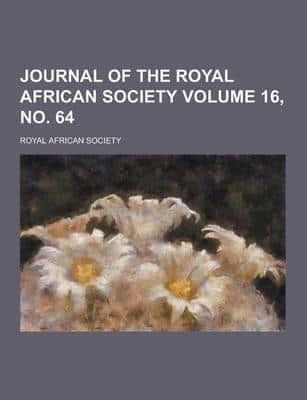Publisher's Synopsis
This historic book may have numerous typos and missing text. Purchasers can usually download a free scanned copy of the original book (without typos) from the publisher. Not indexed. Not illustrated. 1917-01-01 edition. Excerpt: ... the severity of the past winter in Europe, the native labourers in this contingent had been singularly free from pneumonia. Cerebrospinal Meningitis has broken out in the camp of Spotted Fever the German native prisoners of war. in Nyasaland. There have been some severe cases and several deaths. The effect of an epidemic would be serious, as the mortality from this disease among natives is usually high. A circular has therefore been sent round to employers of labour in the Zomba district notifying them of the outbreak and requesting them to take every precaution. Should any suspicious case of illness occur the nearest medical officer is to be advised. A meeting was recently held in Khartum, at which it was A Scientific Journal decided "that a scientific journal be started for the Sudan. dealing with Sudan Anthropology, Languages, Geography, Natural History, and other sciences." General Stack, the Acting Governor-General of the Sudan presided over the meeting: the journal, which will be published quarterly, is to be known as the "Sudan Notes and Records" and will be edited by Mr. J. W. Crawford, Director of Education. CORRESPONDENCE Sir, I notice that the Rev. W. A. Crabtree, in the interesting articles in which he reviews Eric von Rosen's interesting work on the Bangweulu tribes, says "the pulling up of lily roots for food is probably unique." It is not clear whether this refers to the use of the roots or the method of getting them up--if the former, I should like to point out that the roots of the water-lily (yungwi, pi. mayungwi, in Swahili--junji, pi. tnajunji in Pokomo) are a common article of food among the Wapokomo and Wasanye of British East Africa. The water-lilies, however, both blue and white, are usually found in that...

























